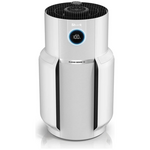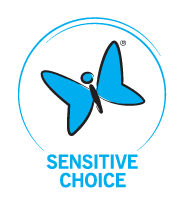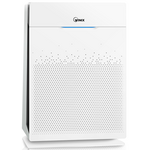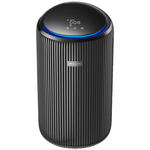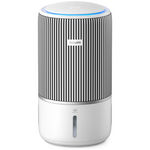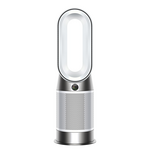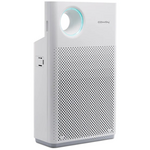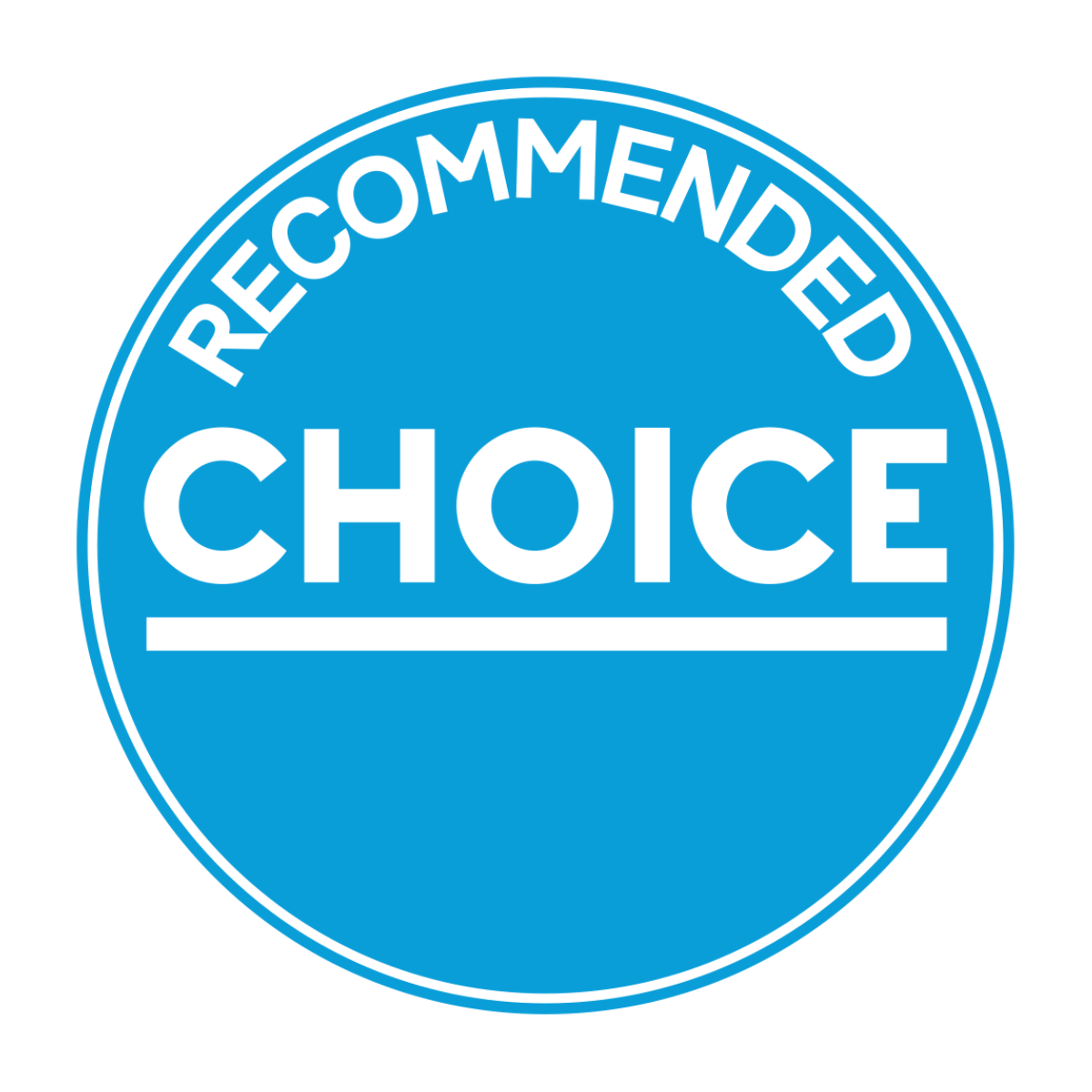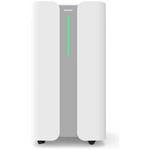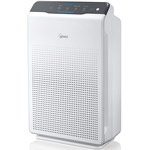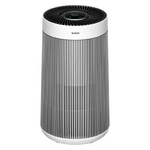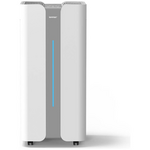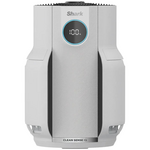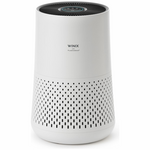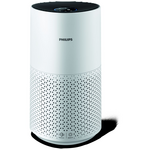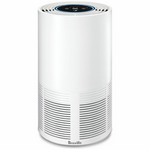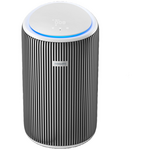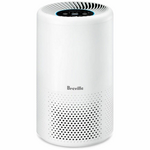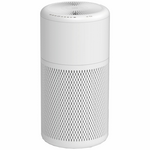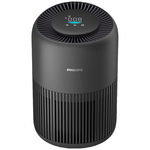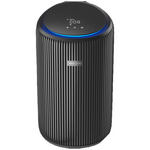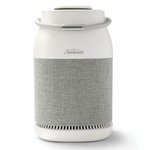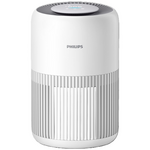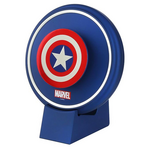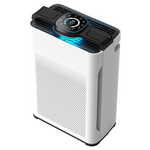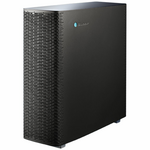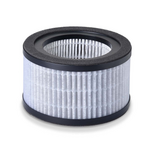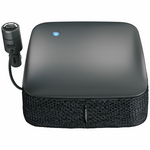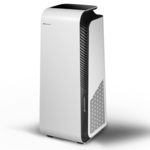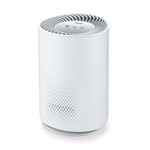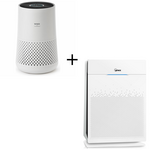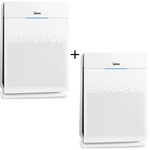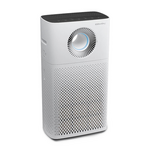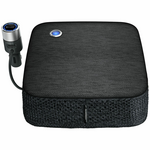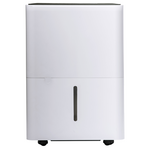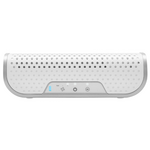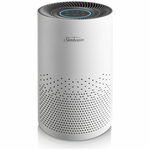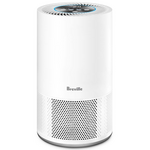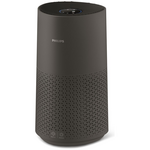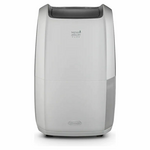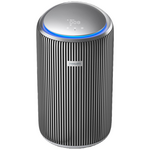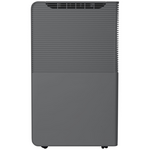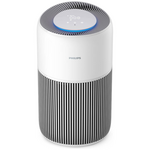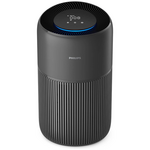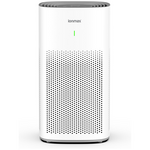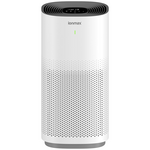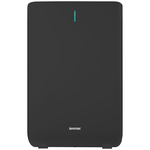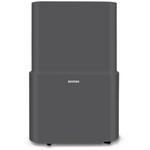Narrow Results
Air Purifiers
Breathe easy with the latest range of air purifiers at Appliances Online, where cleaner air meets innovative technology. Our carefully selected collection, featuring top brands like Breville, Winix, Beurer, and Samsung, offers advanced air purification systems to suit every Australian home. From capturing allergens and pollutants to enhancing overall air quality, these air purifiers are designed to create a healthier, more comfortable living environment for you and your family. Step into a world of pure, fresh air and discover the perfect air purifier to meet your needs today.
... Read more
Air Purifiers
An air purifier is a filtration system that improves the air quality of a room. This helps to remove allergens such as dust mites and pet dander (tiny dry skin particles) from your home. Discover a wide range of air purifier options to maintain clean air throughout your home, from the living room to the bedroom.
Shop the best air purifier brands in Australia, including Breville, Winix, Beurer, and Samsung on Appliances Online and enjoy free, next day delivery in most metro areas.
The main consideration with using an air purifier is the room size. There are models designed for small rooms, like bedrooms, and others better suited to large areas such as open plan living rooms.
Many smart home air purifiers have features such as Wi-Fi and remote control, so you can easily monitor and adjust the settings. Look for Sleep and Night modes so you can set and forget your purifier for a more peaceful home environment. True HEPA filters are designed to remove ultra-fine dust and very small particles which stops the spread of allergens in the air.
Take your air purification to the next level with the Dyson Pure Cool Me Personal Purifier Fan. You can even add a fan heater into the mix with the Dyson Pure Hot + Cool, which can purify, cool you down, and warm you up, all within one home air purifier. You can adjust the fan speed to make your room even more comfortable.
Need a little more assistance in choosing the best air purifier to filter your indoor air? Read through our air purifier Buying Guide.
Air purifiers constantly cycle the air around the machine, removing pollutants and allergens in the process, before pushing the filtered air back into the room. They use a variety of air purifier filters and replacement filters, each with a specific function:
- HEPA (high-efficiency particulate air) filters are the most effective at trapping micron-sized allergens like pollen, pet dander and mould spores, with a 99.97% success rate. They are often used in hospitals or other clinical settings, but many domestic air purifiers now also feature HEPA filters.
- Ozone filters target lingering odours but do not clear any allergens or chemical pollutants from the air.
- Ionic filters electrically charged molecules called ions that attach to tiny particles. These particles are then drawn to special plates within the purifier. These are ideal for removing pollutants from large spaces.
- Carbon filters pass air through an activated charcoal screen, trapping contaminant molecules before removing them from the air. The activated carbon filters are ideal for clearing smoke, odours, chemicals and gases.
- Ultraviolet filters bathe passing air in UV light to eliminate microbes in that air. This only eliminates live contaminants so is ineffective against allergens, odours, and smoke.
HEPA filtration is often paired with the use of an activated carbon filter to thoroughly remove harmful gases, allergens, and airborne particles from the air in your home.
An air purifier enhances your living space by creating clean air and increasing airflow. It’s a great solution to combat poor air quality.
This is especially helpful for asthmatics, allergy sufferers, or those who may be more sensitive to the quality of air. Air purifiers are also helpful home appliances for pet owners, smokers, or families with young children.
Lingering smells and odours can be difficult to remove. Diffusers, as a form of air cleaning, only go as far as masking the air. Air purification will remove odours and other pollutants in order to improve indoor air quality.
Air purifiers, with the use of other air treatment devices, such as air conditioners, humidifiers, and dehumidifiers, are an effective way to improve the overall air quality of your home.
What are the benefits of an air purifier?
- Improves indoor air quality through constant filtration of pollutants and purification of air pollution, leaving air cleaner. Filter replacement helps maintain optimal air quality.
- Can help with allergy and asthamtic symptoms, especially during the peak Australian allergy season in spring.
- Low energy consumption with air purifiers averaging between 20W to 60W of power use. This helps reduce the total amount of energy used as they are generally left on for long periods.
- Reduces airborne particles and pet hair: Alongside their hair, pets may also shed pollen, dust, and other irritants that have been collected on their coat due to constantly moving between inside and outside. An air purifier, along with a vacuum cleaner (especially a vac with a HEPA filter), lets you breathe easier at home.
- An air purifier's portability enables you to provide air treatment around the house, or even your car. They can be moved from room to room, with some models designed with wheels for easy moving.
- Eliminates harmful household chemicals and odours.
Air purifiers are generally priced between $100 to $600, but some models can exceed $1000. Replacement filters, such as HEPA filters and carbon filters, increase the running costs because they need to be replaced every three to six months and range in price between $50 to $200. Whilst there may be a reasonably high upfront cost, the running costs in terms of energy use are relatively low, with most air purifiers using around 20W to 60W per hour. They can often run at even lower power settings to use less energy.
By its design, an air purifier can improve the quality of the air by removing pollutants and allergens. With the use of a HEPA filter, 99.97% of these micron-sized airborne particles are captured. As a result, it may be effective against the virus. However, an air purifier within the home cannot replace good hygiene and other health and safety measures as advised by your healthcare authority.
The noise level of an air purifier depends on the model and the speed setting. Most air purifiers have a quiet mode for night-time use. Check the product specifications for the noise level in decibels (dB) to ensure it's acceptable for you. Many smaller air purifiers will have average operating volumes of between 20 and 40dB, and larger ones can be up to 60dB or more.

